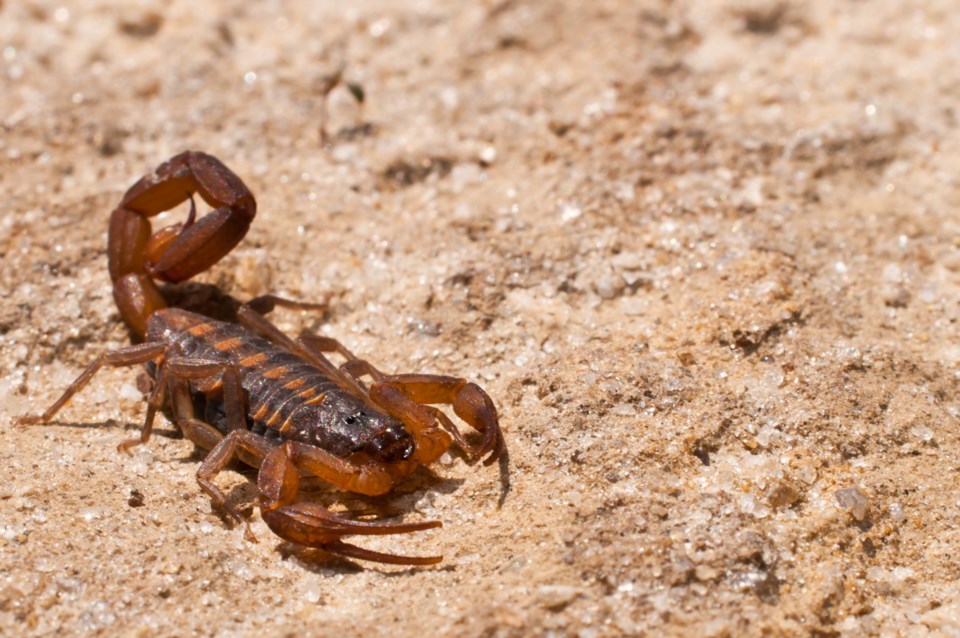Scorpion season in North Texas usually spans from July to August, coinciding with the hottest and driest weather conditions that scorpions favor. Although scorpions can be spotted in other months, this period marks their primary mating season.
Species
According to Texas A&M, in Texas, the predominant scorpion species is the striped bark scorpion, scientifically known as Centruroides vittatus. Adults of this species typically reach lengths of approximately 2.5 inches. Identified by two wide, black stripes running along its back and a distinctive dark triangular marking on the front of its head above the eyes, the striped bark scorpion is easily recognizable in its native habitat.
Where To Find Them
The striped bark scorpion is versatile in its habitat, found both indoors and outdoors in various environments. It typically seeks shelter under rocks, boards and amidst debris. These scorpions are active hunters that do not burrow, often inhabiting areas with dead vegetation, fallen logs and human structures. Known for climbing trees, walls and occasionally making their way into attics, they may migrate indoors during hot weather to avoid the high temperatures typically found in attics.
What To Do If Stung
A scorpion's sting can range from painful to potentially lethal, depending on the species. Out of approximately 1,500 species worldwide, only about 20 to 25 are considered dangerous to humans. Scorpion venom contains a mix of compounds, including neurotoxins that affect the nervous system of their victims. Stings from these dangerous species can lead to paralysis, severe convulsions, irregular heartbeat, or respiratory problems that may result in death. Antivenoms are available in regions where dangerous scorpions are prevalent.
In Texas, scorpions generally cause mild reactions in most people, as their venom has minimal impact on the nervous system. However, the severity of a sting can vary based on the individual scorpion and the victim's sensitivity to the venom. Anyone stung by a scorpion should be closely monitored for adverse reactions. Like any arthropod venom, scorpion stings can trigger allergic responses. Applying an ice pack to the sting site can alleviate pain. If swelling, pain persists, or breathing difficulties develop, immediate medical attention is necessary.
How To Keep Them Away
If you’re hoping to keep them away from your home, there are scents that scorpions strongly dislike. According to Termiopest. Some of the most effective scents that repel scorpions include peppermint, lemon, eucalyptus oil, tea tree oil and citronella oil. These fragrances are known to interfere with scorpions' sensory perceptions, making them less likely to venture into areas where these scents are present. Using these oils in sprays or as part of a cleaning routine can help discourage scorpions from entering homes or outdoor spaces.
Don't miss anything Local. Sign up for our free newsletter.




